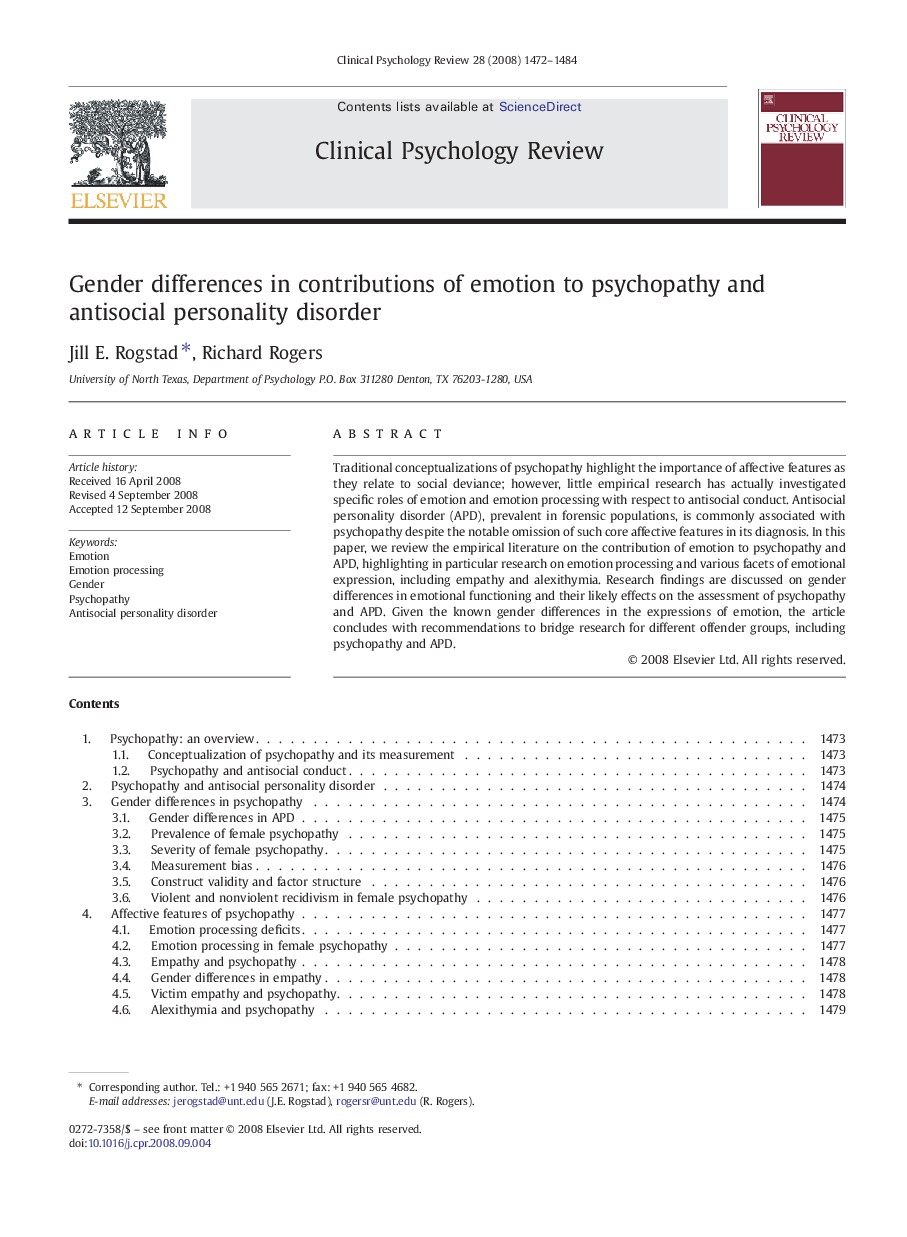| Article ID | Journal | Published Year | Pages | File Type |
|---|---|---|---|---|
| 904040 | Clinical Psychology Review | 2008 | 13 Pages |
Traditional conceptualizations of psychopathy highlight the importance of affective features as they relate to social deviance; however, little empirical research has actually investigated specific roles of emotion and emotion processing with respect to antisocial conduct. Antisocial personality disorder (APD), prevalent in forensic populations, is commonly associated with psychopathy despite the notable omission of such core affective features in its diagnosis. In this paper, we review the empirical literature on the contribution of emotion to psychopathy and APD, highlighting in particular research on emotion processing and various facets of emotional expression, including empathy and alexithymia. Research findings are discussed on gender differences in emotional functioning and their likely effects on the assessment of psychopathy and APD. Given the known gender differences in the expressions of emotion, the article concludes with recommendations to bridge research for different offender groups, including psychopathy and APD.
